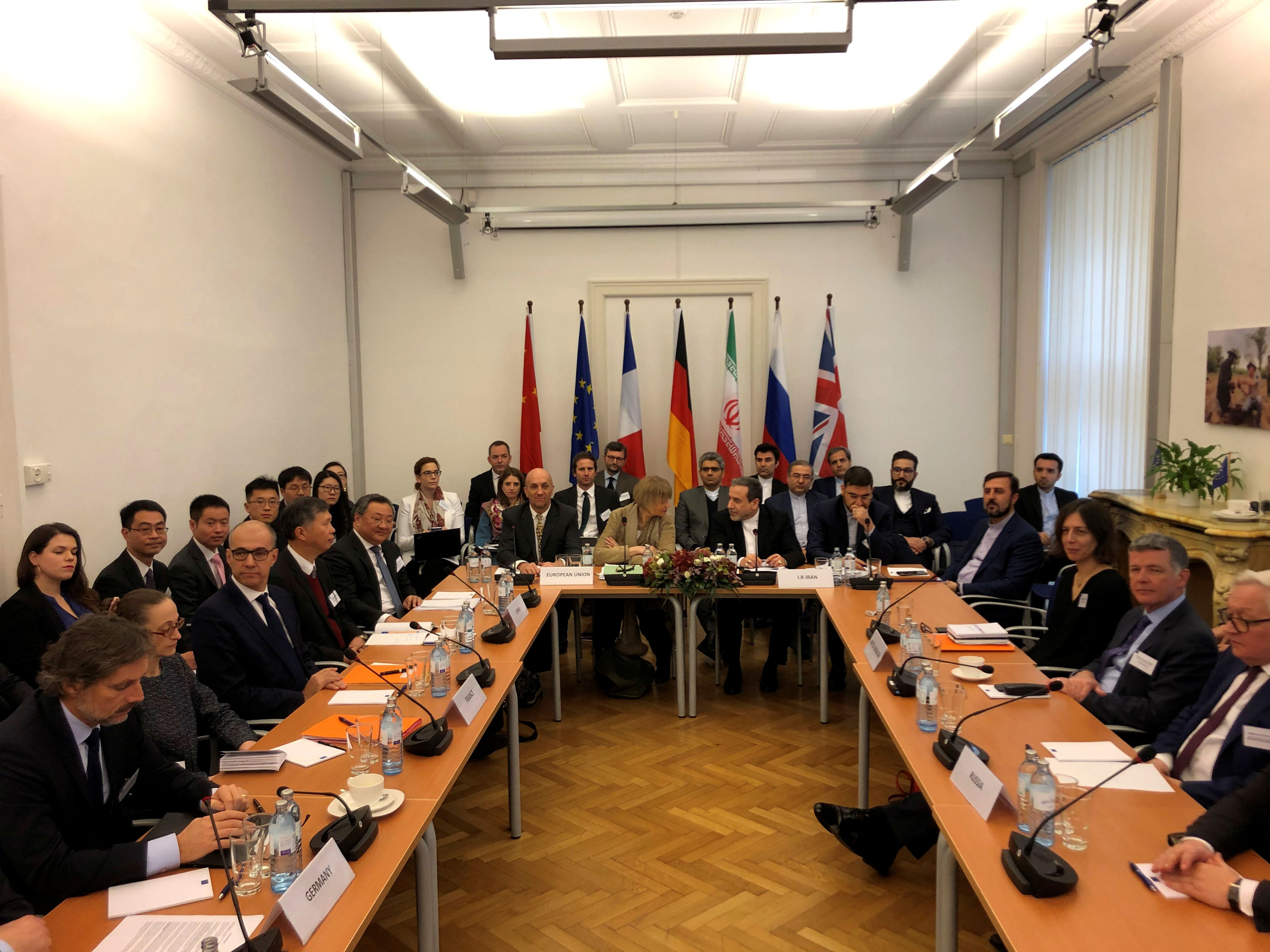The signatories to the Iran nuclear deal stressed their commitment to the faltering accord during talks in Vienna on Friday.
Envoys from Britain, France, Germany, China, Russia and Iran took part in the three-hour-long meeting.
The agreement, known as the Joint Comprehensive Plan of Action (JCPOA), has been unraveling since the unilateral withdrawal of the United States last year and the re-imposition of American sanctions, which has left Iran's economy struggling.
In response, Iran has recently exceeded the stockpiles of uranium and heavy water allowed by the deal, and has started enriching uranium at a purity level beyond what is permitted.
Iran has previously suggested it would walk back those activities if it receives the economic incentives it needs.
Following the meeting, Iranian representative Abbas Araghchi told reporters that he thought the world powers "are interested to find practical solutions so they can continue their economic cooperation with Iran."

A meeting of the JCPOA Joint Commission is underway in Vienna, Austria, December 6, 2019. /Reuters Photo
A meeting of the JCPOA Joint Commission is underway in Vienna, Austria, December 6, 2019. /Reuters Photo
China voices against triggering dispute resolution mechanism
Chinese envoy Fu Cong, the head of the Department of Arms Control of the Chinese Foreign Ministry, urged all parties to resolve differences by stepping up negotiations within the framework of the Joint Commission and argued against invoking the so-called dispute resolution mechanism of the agreement.
It was reported that the European "E3" powers – France, Britain and Germany – have been considering triggering a mechanism in the deal that could lead to re-imposition of global, United Nations sanctions.
Fu pointed out the main reason behind Iran's nuclear crisis is the United States' withdrawal from the Iranian nuclear deal and its maximum pressure campaign against Iran, which is not allowing Iran to enjoy the economic dividend given by the nuclear deal and creating obstacles for Iran in fulfilling its commitments.
"Iran has made it very clear that all the actions are reversible and that they are ready to come back to full compliance," he added.
The Chinese official said the U.S. side should abandon the wrong practice of unilateral sanctions and long arm jurisdiction over Iran and create conditions for promoting the process of political and diplomatic settlement.
Fu also stressed the only correct and effective way to solve Iran's nuclear issues and ease the current situation is to fully and effectively implement the JCPOA.
To safeguard the JCPOA is to safeguard multilateralism and the international order based on the international law, he said, adding that restoring the deal's balance of rights and obligations should be the current priority.
The Chinese envoy also voiced China's support for related parties' efforts to safeguard the JCPOA.
EU urges maintenance, implementation of Iran nuclear deal
"All participants emphasized the key importance of full and effective implementation by all sides as well as their determination to pursue all efforts to preserve the agreement," meeting chair Helga Schmid said in a statement.
The senior EU official also urged Iran to take "all the necessary steps toward full implementation of its nuclear commitments and to avoid further escalatory steps."
Meanwhile, all parties will work hard to protect the economic interests of the Iranian side and support the opening of the "Instrument in Support of Trade Exchanges" (INSTEX) for Iran to a third party, she added.
The statement also said related parties support the supervision of International Atomic Energy Agency on Iran and welcome China and other countries to push forward the reconstruction of Arak heavy water reactor.
(With input from agencies)